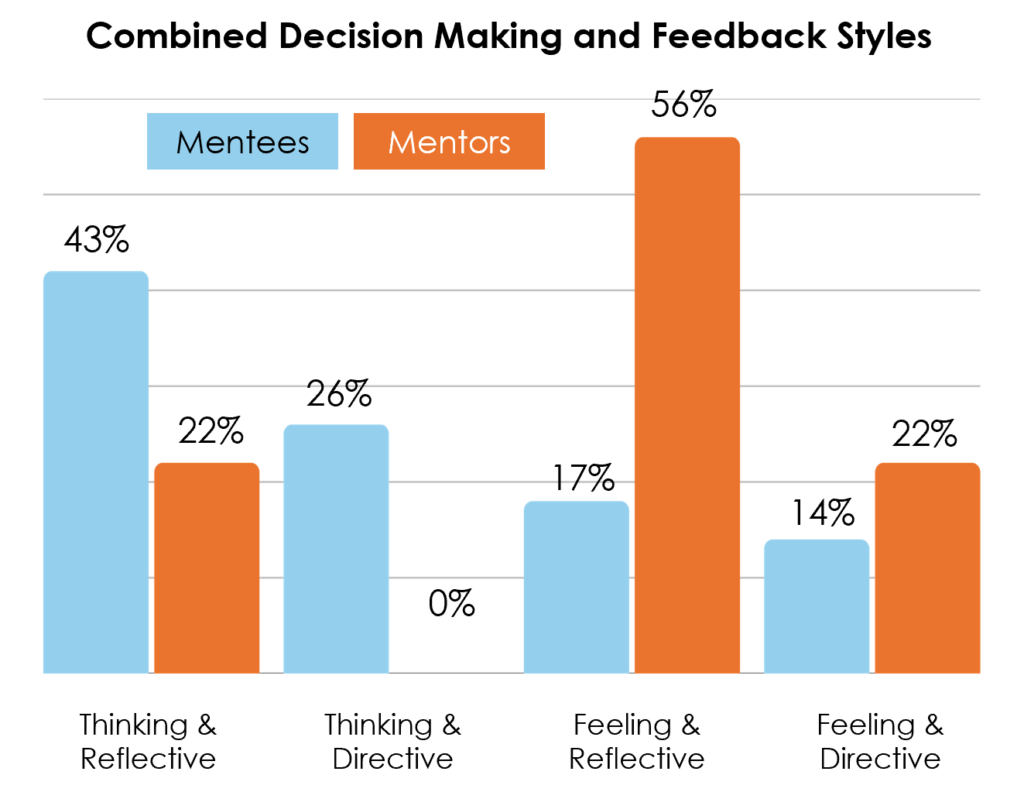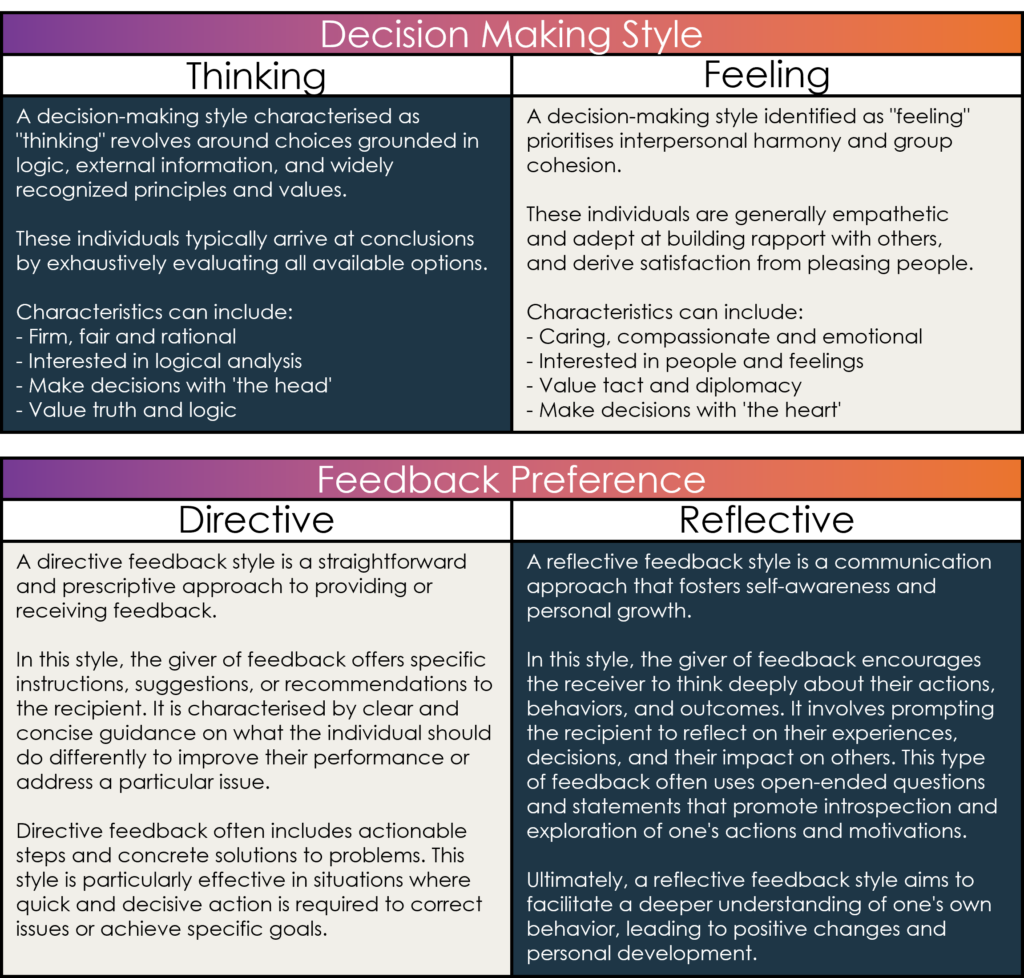Effective mentoring and coaching isn’t just about experience – it’s about alignment. How mentors and mentees make decisions and receive feedback shapes their interactions, learning, and success.
Key Insights for HR & Team Leaders
- Mentees and mentors don’t think, or process feedback the same way! Mentees skew towards logic and structure, while mentors tend to be emotionally driven and reflective.
- There’s a gap in direct, structured feedback. 0% of mentors prefer a Thinking & Directive approach, yet over a quarter of mentees (26%) thrive on it. HR leaders should train mentors to provide more direct, structured feedback where needed.
- Mentees need logical frameworks—mentors lean on emotional intelligence. To build stronger coaching relationships, organizations should balance data-driven guidance with personal connection.
Recent data reveals striking contrasts between the two groups:
Mentees (Early-Career Professionals & Graduates)
- 43% rely on thinking decision making & reflective feedback styles – logical decision-makers who prefer time to process feedback.
- 26% are thinking & directive – structured, analytical decision-makers who respond well to direct guidance.
- 17% lean towards Feeling & Reflective – emotion-driven decision-makers who prefer space to absorb feedback.
- 14% are Feeling & Directive – values-based decision-makers who need clear, actionable feedback.
Mentors (Experienced Leaders & Coaches)
- A majority (56%) have a Feeling & Reflective approach – empathetic decision-makers who take time to process feedback.
- 22% are Feeling & Directive – emotionally attuned but prefer direct, structured feedback.
- 22% are Thinking & Reflective – logical decision-makers who require space to reflect.
- 0% are Thinking & Directive – a stark contrast to the 26% of mentees in this category.

How Can Organisations Discover and Close this Gap?
Trust development is a natural process, but it takes time and carries risks if mismatches occur. TrustPacks, an output of the TrustEngine matching process, help organisations close this gap by providing a structured, data-driven approach to building trust between matched pairs.
Rather than relying on trial and error, TrustPacks offer practical and actionable insights that help individuals quickly find common ground. They highlight what will foster trust and, just as importantly, what won’t, preventing wasted time and mental energy.
By indicating specific areas of compatibility, TrustPacks give matched pairs a clear pathway to stronger relationships, reducing uncertainty in this crucial process.
More than just theory, they provide real-world tools that make trust-building faster, easier, and more effective.
Are you optimising the matching in your mentoring and coaching programs for success? Visit The Platform to learn how TrustEngine can be your thinking partner to mentoring and coaching success.

Outline of preferences provided in TrustPacks, that were used in the study
